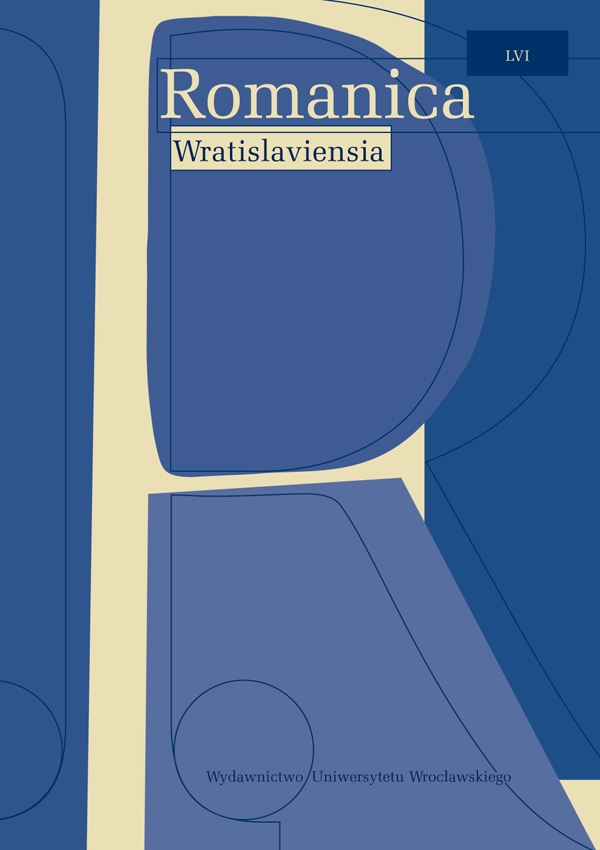

Artykuły

ENUNCIATIVE SCENOGRAPHY AND PARENTHESES. THE EXAMPLE OF L’HOMME-SOEUR BY PATRICK LAPEYRE 2004
In this paper, I try to analyse enunciative heterogeneity which is created by the contact between parenthetic enunciation and frame enunciation énoncé-cadre, and especially the role of parentheses in the enunciative scenography of a contemporary novel. Do the parentheses allow to separate the character’s sphere from the narrator’s sphere in the analysed novel? Our analysis assumes that parenthesis is a sensitive item rich in potential for dialogism between the narratologic actors who are the character and the narrator. From a theoretical point of view, these questions first refer to language heterogeneity phenomena which Mikhail Bakhtine first underlined, but which also are in the centre of analyses by Oswald Ducrot17 on the uniqueness of the speaking subject, Jacqueline Authier-Revuz on the autonymic connotation, and recently Alain Rabate among others on the conception of the point of view from enunciative analyses. Concerning L’Homme-soeur, I believe that this novel contains many scenes where the linguistic reference is to be found not in the external focalising narrator’s perception, but in the main character’s, Cooper, and that parentheses play in this scenography an interesting role from the point of view of focalisation. Little by little, the reader discovers that narration mixes the points of view of both the narrator and the severely depressed main character. Playing with these focalisations in which parentheses are largely used, the author is able to achieve through his writing an image of the fragile mental health of his character Cooper. In this way the narrated and the narration are entangled. Sometimes the parenthesis does not allow to decide whether the enunciation should be attributed to the narrator or the character, and then it rather looks like a meeting spot than a concrete frontier. But at least, in a fiction text analysis, it enables us to combine conveniently linguistic analyses and narratologic analyses to come to a richer conception of the parenthesis as an enunciative activity.